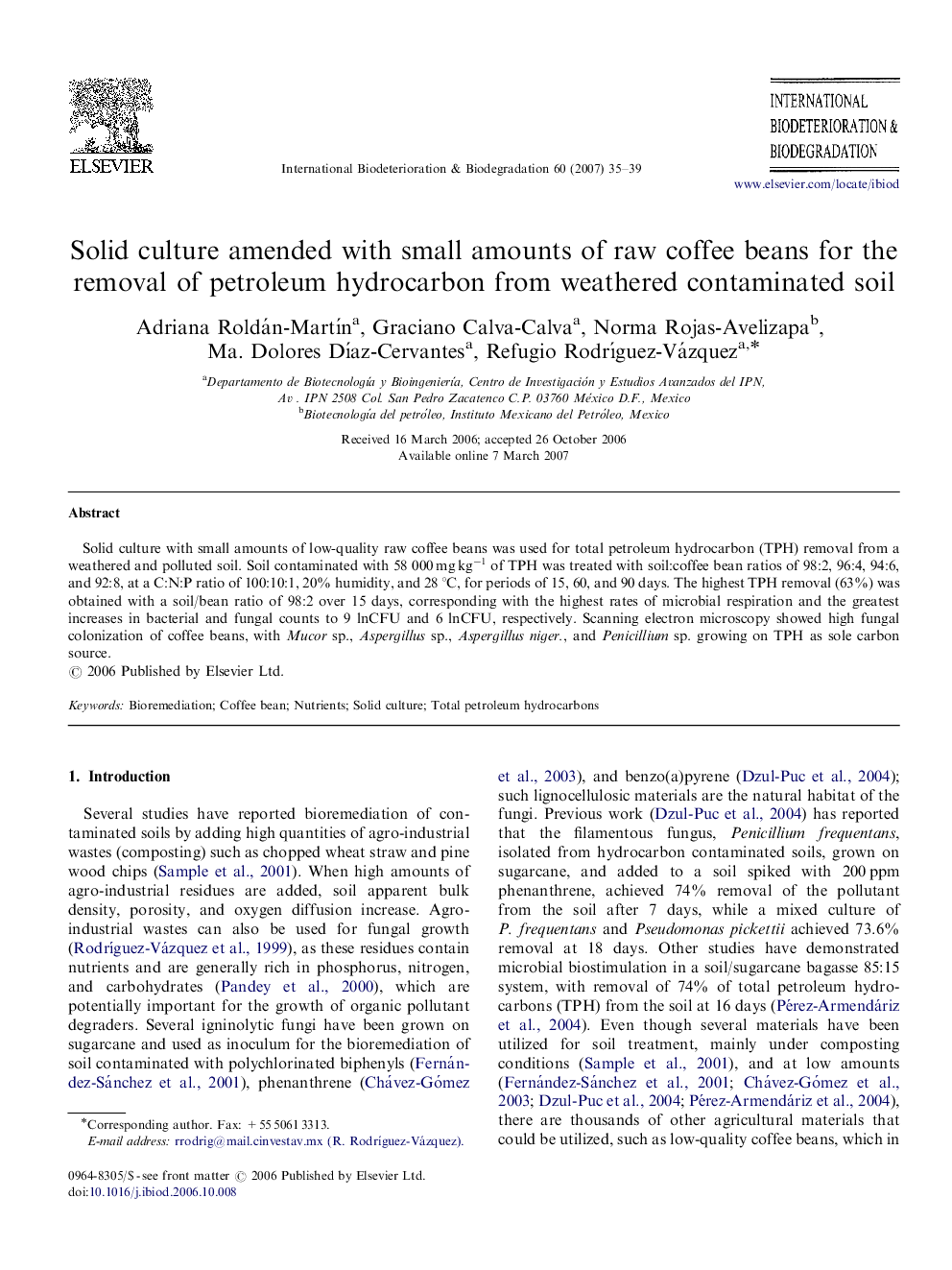| Article ID | Journal | Published Year | Pages | File Type |
|---|---|---|---|---|
| 4365988 | International Biodeterioration & Biodegradation | 2007 | 5 Pages |
Abstract
Solid culture with small amounts of low-quality raw coffee beans was used for total petroleum hydrocarbon (TPH) removal from a weathered and polluted soil. Soil contaminated with 58 000 mg kgâ1 of TPH was treated with soil:coffee bean ratios of 98:2, 96:4, 94:6, and 92:8, at a C:N:P ratio of 100:10:1, 20% humidity, and 28 °C, for periods of 15, 60, and 90 days. The highest TPH removal (63%) was obtained with a soil/bean ratio of 98:2 over 15 days, corresponding with the highest rates of microbial respiration and the greatest increases in bacterial and fungal counts to 9 lnCFU and 6 lnCFU, respectively. Scanning electron microscopy showed high fungal colonization of coffee beans, with Mucor sp., Aspergillus sp., Aspergillus niger., and Penicillium sp. growing on TPH as sole carbon source.
Related Topics
Life Sciences
Environmental Science
Environmental Science (General)
Authors
Adriana Roldán-MartÃn, Graciano Calva-Calva, Norma Rojas-Avelizapa, Ma. Dolores DÃaz-Cervantes, Refugio RodrÃguez-Vázquez,
